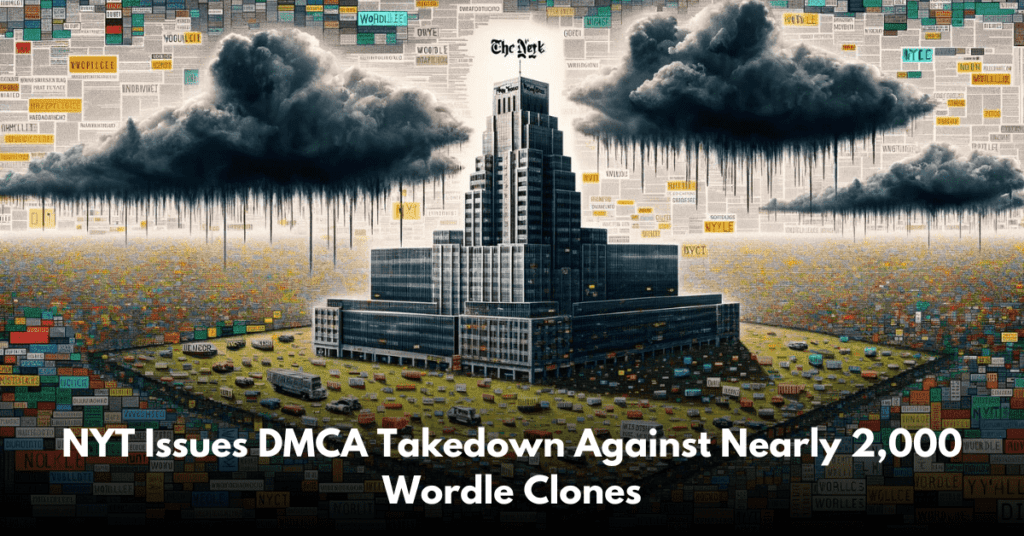An interesting change happened this week in the world of online word puzzles. The New York Times (NYT) sent DMCA takedown notices to almost 2,000 games that were based on the hugely popular Wordle. This move comes just over a year after the New York Times bought the original Wordle in 2022. That Wordle, with its daily word-guessing challenge and green tiles for where the right letters should go, captivated audiences. Many fans are confused about what happened to these Wordle copies all of a sudden, and it has started a conversation about patent laws in the gaming industry.
Copyright Claims and Open-Source Creativity
The New York Times says that the sites were taken down because they violated copyright laws. According to them, the 5×6 letter grid and the colored feedback system (yellow for correct letters in the wrong spot and green for correct letters in the right spot) are integral parts of Wordle that are protected by intellectual property law. This broad meaning includes games made with the “Reactle” open-source project. Chase Wackerfuss made Reactle, which gave people a framework and instructions for making their own variations of Wordle. This made a community of developers grow, which led to a lot of creative spin-offs.
Wordle Clones: Beyond the Copy
These spin-offs were not just cheap copies. In games like Nerdle, words were swapped out for math equations, and players had to figure out the right expression. Squirdle extended the idea to Pokemon by asking players to guess the name of a mysterious Pokemon based on new information given with each guess. Another thing that was taken down was Wordle Archive, which let players go back and do old Wordle challenges and see how they did over time. The wide range of these clones showed that the Wordle formula could be changed and improved to suit different player interests and encourage friendly competition among friends and online communities.
As a result of taking down Reactle, almost 2,000 games that used its code were affected. This includes versions with different themes and in different languages, which shuts down a big part of the online community that was inspired by Wordle. The move has caused a lot of discussion and doubt about how much copyright protection games really have.
Copyright Concerns and the Future of Word Puzzles
The New York Times’s actions have caused people in the gaming world to talk about copyright laws. Some people say that the NYT is killing creativity and new ideas by going after these spin-offs. They say that many of the games that were taken away added new and different ways to play Wordle, which made the genre more popular and fit the needs of a wide range of players. Some people do not believe the New York Times’s copyright claims. Is it possible to legally protect simple game elements like a letter grid or colored feedback?
Gaming’s Future: Copycat or Creativity?
It is still not clear what will happen with Wordle clones. Will this move stop people from coming up with new ways to play word puzzles in the future? Or will developers come up with new ways to push the limits of the genre while still protecting intellectual property? Time will tell how this story ends, but it will definitely start a conversation about ownership, creativity, and how online gaming is always changing. Will the NYT’s actions make the genre more similar, or will developers find ways to make it fresh while still following copyright laws? Is there going to be a new open-source project that takes Reactle’s place? These are just a few of the questions that still need to be answered. One thing is for sure, though: the NYT’s crackdown on copyright has brought to light the complicated relationship between creativity, copyright, and the future of online games.



